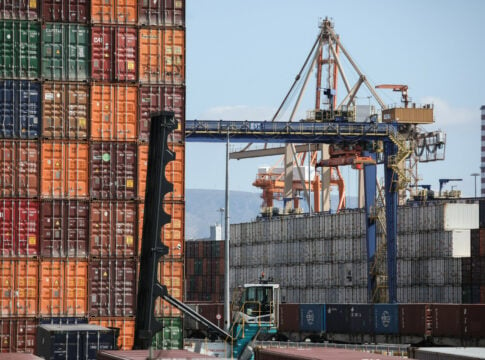Insurance premiums for ship hulls reached 9.2 billion dollars in 2023, up 7.2% compared to 2022.
Ilias Tsakiris, general manager of the American Club (Europe) and CEO of Hellenic Hull, explained at the 150th annual general meeting of the International Union of Marine Insurance (IUMI), that this increase is attributed to two reasons: The increase in the global fleet and the rise of ship values.
“Shipowners are investing in expanding their fleets with new advanced technology vessels to meet the demands of global trade and as a result Hull insurers have extended their cover for these higher value assets.”
However, he warned of potential challenges in the future as a result of higher capacity in the market, particularly from existing insurers seeking rapid growth.
Tsakiris also referred to changes in compensation, noting that 2023 saw an increase in the frequency and cost of compensation compared to recent years, although they remained at pre-pandemic levels last year. “As we move towards 2024, the situation seems to be stabilizing,” he noted.
Disruptions to trade routes
One of the important issues raised by Tsakiris was the impact of geopolitical tensions on global trade routes, particularly in the Middle East. He referred to the ongoing crisis in the Red Sea, where the Houthi rebels have caused significant disruption. “Many ship owners are avoiding the Suez Canal, opting for longer routes around Africa to ensure the safety of their crew.”
This had several consequences. “Longer voyages expose ships to unfamiliar waters and less developed ports, which increases the risk of damage and delays. The lack of rescue and repair facilities on these alternative routes means that even small incidents can escalate and create significant claims.”
In addition to the operational risks, Tsakiris also referred to their environmental cost. Longer distances have increased fuel consumption and higher emissions, he noted, adding: “While the CII rating may look improved, ships burn more fuel as they make these longer journeys, which directly affects the industry’s carbon footprint. This is a serious concern as we work to reduce emissions in line with international targets. We need to find solutions that not only meet regulatory requirements but also actually reduce the carbon impact of global shipping.”














